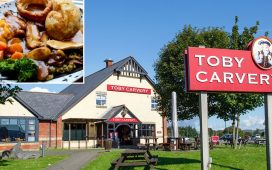The housing market is expected to gain a boost from the election, with greater political clarity countering the trend of falling sales and cooling prices in November, according to the latest survey of chartered surveyors.
Expectations for residential property sales over the next year are at the highest levels since February 2017, with improvements across all areas covered by the latest monthly survey by the Royal Institution of Chartered Surveyors published on Thursday.
The net balance of respondents reporting rising sales expectations for the next three months reached 11 percentage points in November, up from 5 percentage points in October after sitting in negative territory for most of the previous year.
The proportion of surveyors expecting house price rises over the next 12 months was 33 percentage points higher than those expecting prices to drop.
“Whatever happens in the general election today, it is important that the new government provides reassurance both over the stewardship of the economy and the ongoing challenges around Brexit which continues to be highlighted in a disproportionate number of remarks made by respondents to the RICS survey,” said Simon Rubinsohn, RICS chief economist.
Despite improving expectations, the picture for the housing market remained bleak in November with falling house sales and prices.
“The latest set of results indicates that persistent economic and political uncertainty is deterring both buyers and vendors, and anecdotal commentary cites the general election and Brexit as stifling activity,” the survey said.
In November, a majority of respondents reported falling house prices with a net balance of minus 12 percentage points, down from minus 5 percentage points in October. The fall is mainly a result of negative price trends across London, the South East and East Anglia, while Northern Ireland and Wales reported house prices gains.
A majority of surveyors also reported falling buyers’ inquiries and agreed sales, reflecting a trend that started in early 2017.
“Housing market activity and house price growth showed few signs of improvement at the end of 2019. Indeed, activity has, if anything, been cooling,” said Hansen Lu, property economist at Capital Economics.
The RICS survey is a measure of the health of the sector ahead of official statistics.
House price growth has cooled significantly in the past three years, with the annual rate dropping to 1.3 per cent in September, the latest data available, down from 8.2 per cent in June 2016, according to the Office for National Statistics.
London has been the worst performing region, with annual prices contracting since March 2018.
The number of houses sold is down 1.7 per cent in the third quarter compared to the same period last year, according to preliminary figures from HM Revenue & Customs, and 6.6 per cent down compared to the same period in 2015 before the EU referendum.












